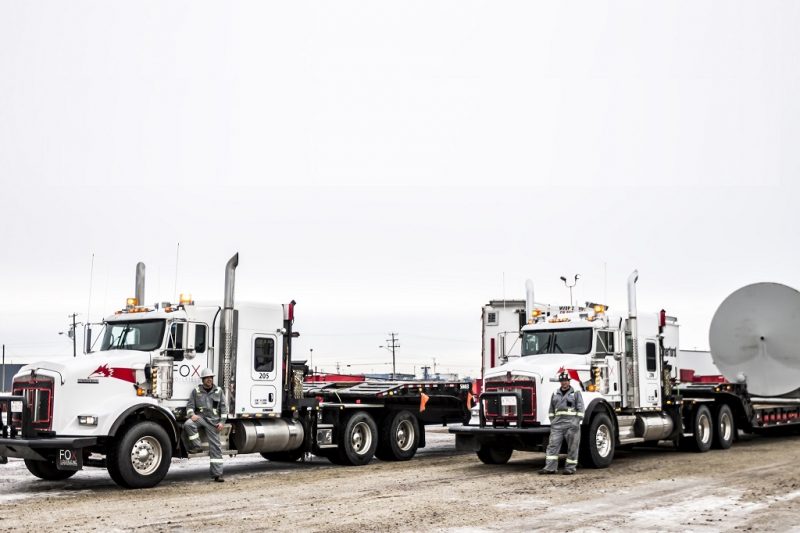The oil and gas trucking industry is as expansive as oil and gas itself. According to Business Insider, trucking moves 71% of all freight in America. It comes as no surprise that one of the most needed positions is truck drivers. As the oil industry fluctuates, so do the needs of workers. As the need for oil increases, the need for someone to transport that oil does too.
The trucking industry employs thousands upon millions of drivers for companies. They are the reason grocery stores have milk and gas stations have gasoline.
Without the truck industry, millions would be left unemployed. To show appreciation, here are the top three facts about Texas oilfield truck drivers.
It’s a Multi-Billion Dollar Industry
America runs on Dunkin and also with oil. In fact, in 2017, the U.S. trucking industry generated over $700 billion. Of all freight hauled in 2019, 72.5% were dependent on trucks, which equated to a whopping 11.84 billion tons. According to the U.S. Department of Transportation, as of April 2020, the number of for-hire carriers on file with the Federal Motor Carrier Safety Administration totaled 928,647, private carriers totaled 799,342, and other interstate motor carriers totaled 84,763.
Oilfield Truckers Need Special Skills
Being an oilfield truck driver requires special skills since it is a highly specialized field. Much like a doctor needs to go to medical school, an oilfield truck driver needs to know more than just how to drive a truck. Truck drivers need three things – a Class A CDL driver’s license, a HAZMAT endorsement, and basic mechanical skills.
– Class A CDL: This is a driver’s license every truck driver should carry.
– HAZMAT Endorsement: This endorsement will help drivers understand vehicle inspection, transporting dangerous freight, and go through the loading/unloading and coupling/uncoupling process.
– Mechanical skills: A tractor-trailer is enormous machinery. Knowing mechanical skills will go a long way if you happen to need to change a tire or adjust the load on the trailer.
It’s More Dangerous than the Most Dangerous Professions
It’s an objective fact – the trucking industry is one of the most dangerous professions in the world. While being on an oil rig itself is risky, it’s the transport of oil via trucks that harbor the most alarming statistics regarding death.
According to the U.S. Bureau of Labor Statistics data:
- 1 out of every 6 American workers killed on the job is a tractor-trailer truck driver.
- In 2017 alone, 840 tractor-trailer truck drivers were killed while working.
- One person is injured or killed in a truck accident every 16 minutes.
Truck accidents are the main result of human error. Fatigue makes up for over half of the accidents truck drivers go through. From falling asleep at the wheel to losing control due to drifting, fatigue makes up 56% of the accidents.
In the oilfield industry, there’s a reason for this fatigue. Other trucking industries have different regulations for their drivers. For the oilfield truck drivers, drivers face pressure to work 20-hour shifts because of scheduling and pay incentives. Other industries require restart breaks, but an HOS “exemption” has workers driving longer hours for hydrofracking purposes.
Other reasons include:
- Inexperience: Like every job, some are experienced, and some are having their first day. For oilfield truck drivers, inexperience weighs heavily, especially if they carry explosive liquid cargo. If they aren’t careful, a lack of training and safety can lead to the worst day of someone’s life.
- Speeding: Negligent driving, such as speeding, needs to be avoided at all costs when operating a commercial oilfield truck. It takes trucks longer to slow down and stop, so if trucks drive at high speeds, the results can be disastrous.
- Distracted Driving: This type of driving is also seen as negligent. Drivers that are distracted have their attention on what they are doing rather than the road. This can include texting, talking on the phone, eating, or even reading a GPS.
- Unsecured, Unbalanced Loads: Every load should be secured and balanced on the trailer. Trucks that aren’t secured or that are uneven can tip over, sway, or cause debris. Losing control is a common result if this happens.
Hire an Oilfield Truck Accident Lawyer
If you were involved in a truck accident, don’t hesitate to contact an oilfield truck accident attorney. Personal injury law firms, like Sutliff & Stout Law Firm in Houston, are some of the best injury lawyers to contact if you were involved in a truck accident. In tandem, Houston has one of the best hospitals in Texas. After your medical treatment, contact a TX accident lawyer. Oilfield truck accidents cause thousands in injuries and damages, and it’s important that you’re represented. Call or Google the best accident lawyer near me or the best personal injury lawyer near me to hire the best accident lawyer for your truck accident case.
